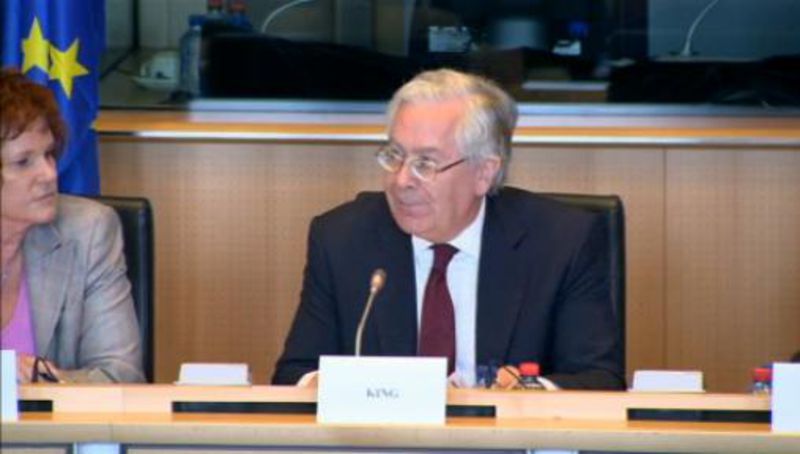Let's leave theory to economists - there will be a crisis
Adelina Marini, August 15, 2011
 The debt crisis in the eurozone is deepening and already bit Italy and is approaching France - two of the largest economies in the monetary union. In the meantime, on the other side of the Atlantic, the United States managed to closely avoid a default after reaching a hard and not very reasonable compromise on raising the debt limit, leaving the major dispute for the autumn. The markets are in a pre-hysteric condition and have already stopped listening to the credit rating agencies, the governments and started acting chaotically.
The debt crisis in the eurozone is deepening and already bit Italy and is approaching France - two of the largest economies in the monetary union. In the meantime, on the other side of the Atlantic, the United States managed to closely avoid a default after reaching a hard and not very reasonable compromise on raising the debt limit, leaving the major dispute for the autumn. The markets are in a pre-hysteric condition and have already stopped listening to the credit rating agencies, the governments and started acting chaotically.
Against this background economists and analysts are shouting at each other - some say there is not going to be a crisis. Others - quite the opposite. Moreover, the world is in terror that talking about it in itself can lead to a crisis - something like a self-fulfilling prophecy. Even in a dedicated article in the Washington Post, Ezra Klein states: Don't Call It A Recession!, having in mind the economic situation of the United States. He starts his article with the bets popular names in economic science had started to make; former adviser to President Barack Obama Larry Summers, says there is a "1-in-3 chance" [for a recession]. Ex-Reagan adviser Martin Feldstein pegs it at "50-50." Matt Yglesias, a fellow at the Centre for American Progress, has calculated the risk precisely at 31.22 percent.
White House spokesman Jay Carney says, quoted by the newspaper, "We do not believe that there is a threat there of a double-dip recession". In order to further calm the spirits Ezra Klein is quoting one of the most influential economic experts, Ken Rogoff. The Harvard economist makes a thorough research but reaches the conclusion that obviously markets are panicking because they have realised that economy is not going back to normal soon and regrets that they had not read more of him.
Yet with the very first signs of recovery of the economy a year and a half ago it was well known that the main focus of efforts for further recovery should be on reducing unemployment. Alas, these efforts did not bear much fruit in the countries with huge budget deficits and debt. Those are the countries that were forced to bailout their banking systems thus accumulating more debt and blocking their chances to reduce unemployment and boost economic activity.
Against this backdrop, although it is clear that the aim is reassuring the markets, as the experience with credit rating agencies shows - not uttering the facts will not prevent the markets from panicking. Investors obviously do not read economic theories, are not interested in who what efforts had invested and what expectations has. They are only interested in more profits. So, there will be a crisis and it will be both economic and political.
 | © European Union
| © European Union | © European Union
| © European Union Klaus Regling | © Council of the EU
Klaus Regling | © Council of the EU Mario Centeno | © Council of the EU
Mario Centeno | © Council of the EU Mario Centeno | © Council of the EU
Mario Centeno | © Council of the EU | © null
| © null